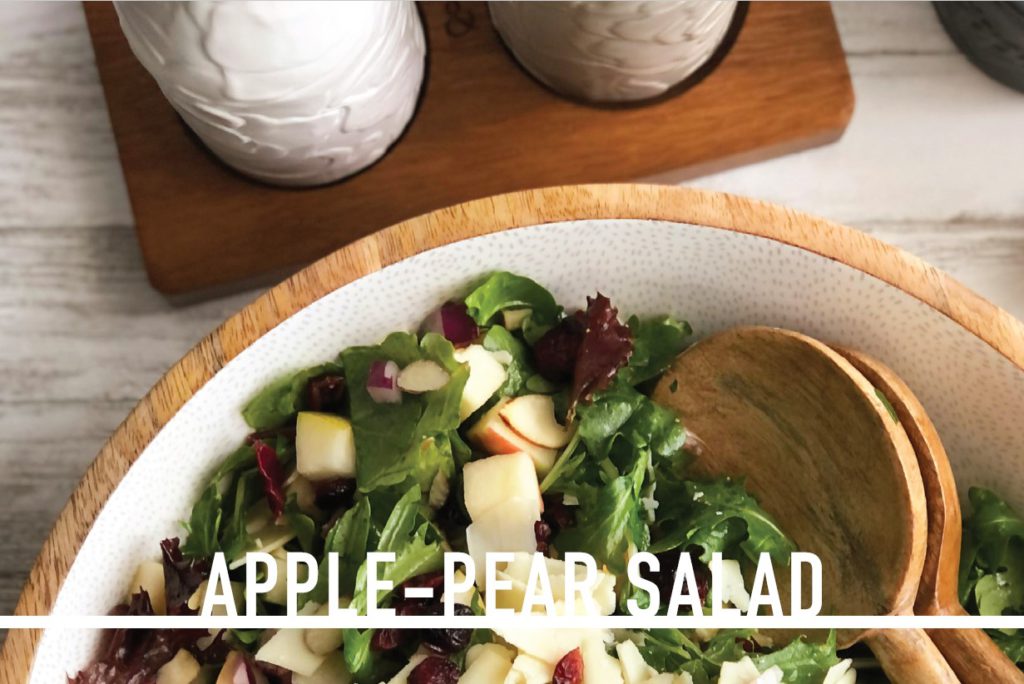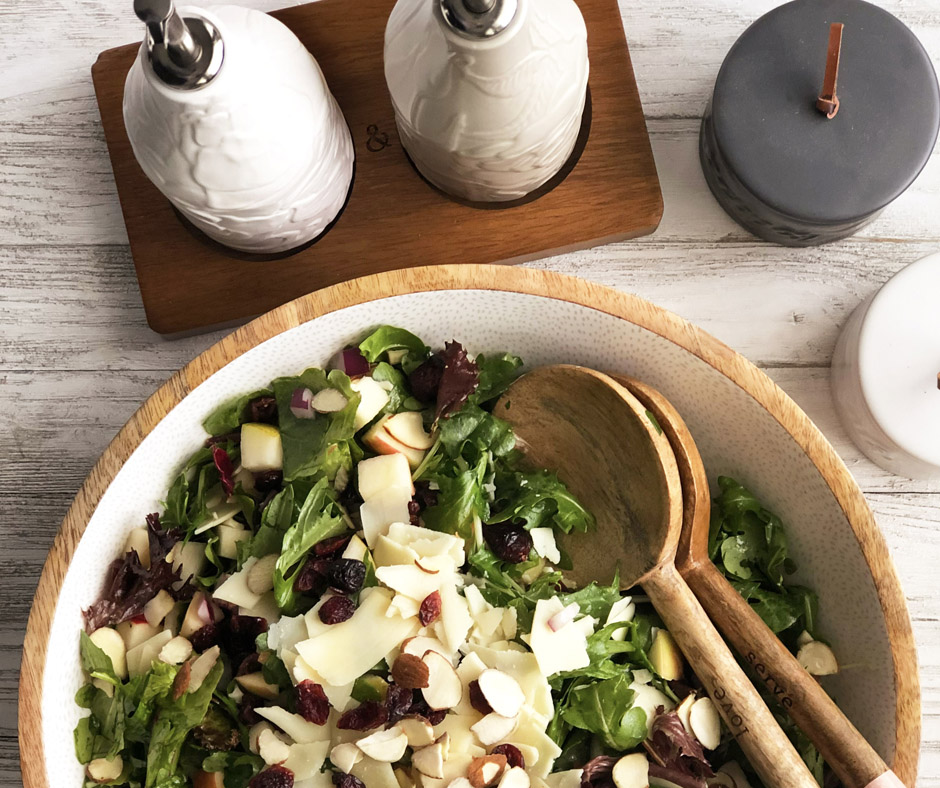Happy New Year’s Eve, eve! We hope you had a very Merry Christmas, and are still enjoying time with family and friends as you marvel in the wonder of Jesus’s birth. We thought it would be fun to share another great recipe from DaySpring’s sister site, Mary & Martha! Our friend Nancy creates the most delicious, beautiful recipes for Mary & Martha, and we are super excited to bring some of them here to (in)courage — like this one, perfect for the coming new year.
After a holiday week full of treats and heavy dishes, we’re starting to look for lighter recipes that are still delicious. This beautiful salad from our friend Nancy C. is just the ticket! Perfect for a post-holiday lunch with friends, a refreshingly light supper on a busy night, or easy to toss together for a neighbor! And of course, it’s not too late to celebrate Christmas or New Year’s with friends. Invite a few gal pals over to catch up! Serve this delicious Apple-Pear Salad with warm bread and lots of laughter.
May this holiday weekend bring the same lightness, sweetness, and refreshment to our hearts as this dish does to our table.
Friends, scroll down for the recipe and download a free printable recipe card!

APPLE-PEAR SALAD
DOWNLOAD THE FREE RECIPE CARD HERE!
Prep Time: 25 minutes
Bake Time: none
Makes about 8 servings.
INGREDIENTS:
- 8 to 10 cups mixed salad greens
- 1/2 cup chopped red onion
- 2 medium size apples, chopped
- 2 medium size pears, chopped or sliced
- 1 cup dried cranberries
- 1 cup shaved or shredded Parmesan cheese
- 3/4 cup sliced almonds
- 3 Tablespoons olive oil (or your favorite salad oil)
- 1 1/2 Tablespoons apple cider vinegar (or your favorite vinegar)
- Salt and pepper to taste
INSTRUCTIONS:
- In a large bowl, add the mixed greens, red onion, apples and pears, dried cranberries, Parmesan cheese, and sliced almonds.
- Drizzle the olive oil over the salad ingredients, then drizzle the vinegar. Season with some salt and pepper.
- Toss the salad ingredients with the oil, vinegar, salt, and pepper; toss well, until everything is coated.
- Garnish with additional cheese, cranberries, and almonds, if desired, and serve.

NOTES:
- You can substitute your favorite vinaigrette for the oil and vinegar.
- If you’re using oil and vinegar but would like a sweeter taste, drizzle 1 tbsp. of honey over the salad ingredients, along with the oil, vinegar, salt, and pepper. Toss well.
To get the beautiful and bright look above, serve in the Enamelware Salad Server Set, and set your vinegar and oil in the Vinegar + Oil with Tray. Visit the Mary & Martha site to browse the winter catalog, find more recipes, and connect with a consultant to learn more and place your order!




 Today marks the fourth Sunday in the season of Advent, the four weeks leading up to Christmas Day. We’ve been journeying with these ancient promises for the full season of Advent, and it’s led us here to Christmas Eve. May you experience God’s Word in fresh ways tonight, as we anticipate Christmas morning.
Today marks the fourth Sunday in the season of Advent, the four weeks leading up to Christmas Day. We’ve been journeying with these ancient promises for the full season of Advent, and it’s led us here to Christmas Eve. May you experience God’s Word in fresh ways tonight, as we anticipate Christmas morning.


